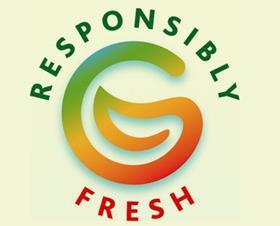
In 2012, VBT, the Belgian association of horticultural cooperatives, launched a new collective sustainability project and label called Responsibly Fresh, espousing collective action to tackle the industry’s sustainability challenges.
Six years on, the third sustainability report, which examines the period from 2012 to 2018, offers a snapshot of what has been achieved so far, including positive economic, environmental and social developments.
The report was this week handed to Flemish Agriculture Minister Joke Schauvliege who communicated her satisfaction with the sustainability efforts made in the fruit and vegetables sector.
The measures surveyed in the collective dossier include various sustainability topics ranging from energy- and water-saving techniques, integrated cultivation and packaging materials to specific provisions for employees and socio-cultural activities by growers.
The dossier relies on the input of 2,428 growers, all those with a turnover of more than €25,000, comparing the results of 2017 with those from 2015 and 2013.
Lies Elsen, who is in charge of the sustainability report at the VBT, commented: “The collective dossier shows that progress has been achieved on almost all of the sustainability criteria since the previous years. The growers are more and more committed to sustainable farming techniques and applying new technologies. One reason for the progress has been the support that the marketing cooperatives offer their growers. A new feature in this year’s report is the short speeches by various growers giving examples of the innovations they are making on their farms in their drive towards sustainable development.”
The report has been collated on the basis of internal and external data from the marketing cooperatives, along with information from the collective dossier and from the Sustainable Business charter, and was drawn up in compliance with the directives of the Global Reporting Initiative (GRI).
The new strategy is due to be launched in early February 2019 at Fruit Logistica in Berlin.
According to VBT president Rita Demaré, efforts will continue to boost collaboration with stakeholders and meet external sustainability initiatives, including the UN’s Sustainable Development Goals (SDGs).
“The SDGs form an international reference framework for the achievement of sustainable development,” she said. “As a sector, we want to sign up to them. In addition, there is an explicit link between sustainability and the cooperative business model. The cooperative identity will thus be more and more of a focal point in the new strategy, along with the prominent role played by fresh fruit and vegetables in a sustainable diet.”
“The fruit and vegetable sector realised very early on that efforts towards sustainability are important not only for the sector’s image, but also for the sake of securing the future,” clarified Schauvliege. “In my capacity as Agriculture Minister, I would like to thank all the growers who have helped to deliver the fantastic results from Responsibly Fresh, and I hope that your efforts will help to inspire the other sectors.”



